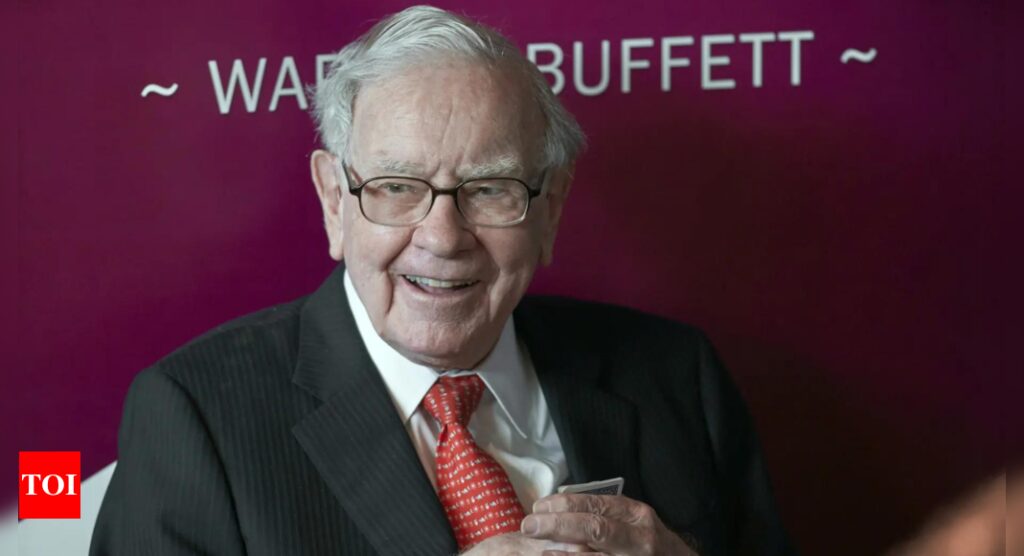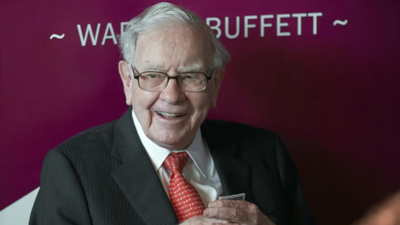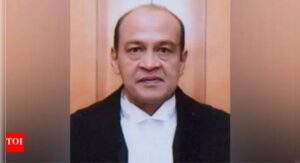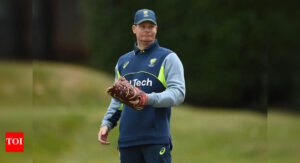‘Spend it wisely’ and maintain stable currency: Warren Buffett’s advice to Trump

Warren Buffett reflected on the impressive achievements of Berkshire Hathaway in his annual letter to shareholders, which was released on Saturday.
In the letter, the billionaire Buffett celebrated the company’s growth over the past year as well as the remarkable journey of transforming a struggling New England textile business into a massive conglomerate over the last 60 years, according to AP.
Buffett opened the letter by acknowledging that, while he had made mistakes throughout his career, the man he has chosen to succeed him as CEO, Greg Abel, is not one of them. Buffett praised Abel’s ability to spot and act on significant investment opportunities, ensuring shareholders that Abel is well-prepared for the future.
Although Buffett did not dwell much on his tenure as CEO, he did reflect on some key moments.
He pointed out that when Berkshire Hathaway paid zero income tax in the decade before he took over in 1965, it highlighted a major mistake.
Over the years, the conglomerate’s success led to significant tax contributions, with Berkshire paying $26.8 billion in corporate income taxes last year—“far more in corporate income tax than the U.S. government had ever received from any company,” Buffett noted. This contribution far surpasses the taxes paid by even the largest tech giants.
Buffett has kept his letters largely focused on business and avoided delving into politics. This year, he made a subtle yet pointed remark regarding the government’s spending.
He thanked the US government for its role, adding, “Someday your nieces and nephews at Berkshire hope to send you even larger payments than we did in 2024. Spend it wisely. Take care of those who have had bad luck in life. They deserve better. And never forget that we need you to maintain a stable currency, which requires both wisdom and vigilance.”
Cathy Seifert, an analyst with CFRA Research, described Buffett’s message as powerful in its subtlety.
Abel, who will eventually take over as CEO, has a substantial financial base to work with. Berkshire Hathaway now holds $334.2 billion in cash—almost double the $167.6 billion it had a year ago—after selling much of its Apple and Bank of America stock over the past year. This cash reserve is bolstered by continued profits from Berkshire’s diverse subsidiaries, including Geico, BNSF Railroad, and major utilities, as well as well-known retail brands like Dairy Queen and See’s Candy.
Buffett did find ways to spend some of this cash, including a $3.9 billion acquisition of the remaining shares of a utility business from the estate of a former partner, and $2.6 billion to buy the rest of the Pilot truck stop chain. He also increased Berkshire’s investment in five major Japanese conglomerates, bringing the total invested in Japan over the last six years to $13.8 billion, now valued at $23.5 billion.
Despite some challenges in finding large acquisitions in recent years, Buffett reaffirmed that Berkshire will not offer a dividend.
In a move that may reflect his advancing age, Buffett announced that this year’s annual shareholder meeting, typically a full day event, will be shorter. He and Berkshire’s two vice chairmen will answer questions from 8 a.m. to 1 p.m., several hours less than usual. Buffett also humorously acknowledged using a cane to avoid “falling flat on my face.”
Berkshire Hathaway’s stock, which Buffett began buying for $7.60 a share in 1962, is now among the most expensive in the world.
On Friday, Class A shares closed at $718,750 apiece, though Berkshire also offers a more affordable Class B stock, which sells for $478.74.
As a part of the 60th anniversary celebrations, Buffett announced that shareholders will have the opportunity to purchase a special book filled with untold stories and lessons from Berkshire’s history. The book will be available at the upcoming annual meeting.






